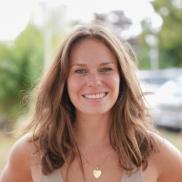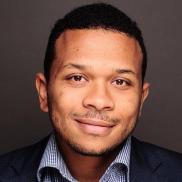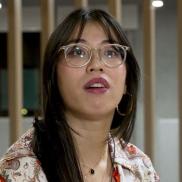

Product Manager at Atlas For Men
Cultivating a passion for Japan
I originally chose to study in a business school because I wanted to go to Japan. When I was 13-14 years old, I fell in love with this country, which I found very different from France. I absolutely wanted to go there but my parents didn't want me to stop my studies for a year to get there.
When I entered high school, I started to take Japanese classes. I went to the university to attend evening classes as an auditor. Everyone around me was in their twenties and I was only 15.
I thought about the best way to finally go to Japan. I had found a solution: integrate this trip into my studies.
I wanted to study business. I had already heard about business schools. I decided to follow this path, especially because of the possibility of going abroad. I noticed that EM Normandie offered an expatriation to Japan and the opportunity to take Japanese as a third language!
Finally exploring the country
When I first arrived in Japan, I didn't have a huge culture shock because I had done a lot of research on the country. It corresponded well to the image I had of it.
I realised quite quickly that I wouldn't make a career or live there for very long.
The semester I spent in Japan was really nice.
When you are a tourist in Japan, you are welcomed like kings. I think it's a country that remains quite nationalistic. On the other hand, the decision-making processes are very long and you have to refer to many people. This can be frustrating for a French person who likes things to go quickly.
Exploring different facets of marketing
In the event industry, I find it quite annoying to have to prepare projects for clients and have to file them away if you don't get the contract. I feel like I've worked for nothing. Event management is probably not the right sector for me.
During my studies, I really liked marketing but I had difficulties finding an internship. Recruiters were often looking for someone with experience.
One day, I saw an interesting advert for the creation of catalogues for distance selling of clothes.
Since I was very young, I have been very fond of this kind of catalogues. When we received them at home, it was a feast for me! Seeing all those pictures stimulated my imagination a lot.
The internship offered seemed very versatile. Also, no marketing experience was required. I felt that this was the job for me! The interview went well. I had a good connection with the product manager who was looking for an assistant.
I started my internship at Atlas for Men, which I really enjoyed. I felt very comfortable in my role as assistant product manager.
I decided to do a work-study programme for my final year. I really wanted to stay with the same company or have exactly the same position in another company. I still had a lot to learn in this field.
Moving from internship to work-study
I asked for an interview with my manager to tell her that I wanted to stay at Atlas for Men. I knew that they weren't looking for work experience students but I wanted to take a chance. She told me that it was really a coincidence because she was about to leave the company to move to another region.
She told me that there would be a reorganisation of the department. Moreover, she was very satisfied with my work. She therefore pushed my application to the management so that I could stay in the company.
A job was opened for me on a work-study programme. The person who held this position was promoted.
I had to be very organised to take over the job. I went from being an assistant to being a product manager, with all the decision-making that goes with that. As a work-study student, I had a very busy year with my studies on the one hand and my assignments in the company on the other. I had to deal with phone calls, emails and appointments with agencies.
Getting your first job
My job evolved and I gradually took on more and more responsibility. During my work-study period, I gave everything I had to get a permanent contract.
I signed my contract even before the end of my work placement, around March.
Today, I am the sole manager of the women's brand at Atlas for Men. This opens up many possibilities for developing the brand, which is not the case in all companies.
Eight months before the release of each catalogue, we have a meeting with other departments, such as purchasing or sales forecasting, to make a collection plan. We decide on the items that will appear in the catalogue, the types of clothes, accessories, materials, etc. We set the prices in order to maintain a correct margin.
This phase of work makes it possible to put together the collection. Then the purchasing department approaches its suppliers to obtain product samples. The clothes received are sent to the marketing department and we start the photo shoot with models.
Learning to manage several projects at once
A catalogue comes out almost every three weeks. This rhythm is quite intense.
I have about 3 catalogues to manage simultaneously at different stages of production.
Each catalogue generally corresponds to a theme. You have to manage the organisation of the shoot as well as the teams involved. It's a job that requires a great deal of versatility and a good ability to adapt to unforeseen circumstances.
We also brief the writers who have to produce the catalogue texts. We then have to adapt them to our editorial line. We also work with a creative agency that produces the catalogue layouts. For example, we tell them which products to highlight.
As this is distance selling, we have to do a lot of work to ensure that the photos reflect the materials and colours of the products.
Customers must not be disappointed to see a different colour from the photo when they receive the product.
Once the design has been finalised, we send the catalogues to print. When we validate the proof, we pray that there are no errors, as the catalogues are printed in thousands of copies.
This is followed by a phase of analysis of the results, during which we study the products that have sold well and those that have sold less. We identify the features that were more or less popular and use them for subsequent collections.
Making the most of your years of study
I made contacts with quite a few people on different campuses of EM Normandie. We formed small groups of friends.
Many of us started our careers in Paris, which makes it possible to form groups of people who did not know each other before. To date, we represent a fairly large group of EM Normandie graduates from different campuses.
I think it's okay not to know right now what job you want to do later. I think you should give yourself time to try out a lot of things through internships, work experience and expatriations.
With each experience, you can identify what you like about each job and what you leave out. This allows you to refine your career wishes.
These years of study give you a lot of scope to try out different sectors of activity and professions.
I really appreciated the fact that I could often go abroad. Once I had done all the destinations I wanted to go to, I started to want to flesh out my CV and to be interested in the world of work. You have to take advantage of the time you are given to try out as many things as possible. Not all schools give you that opportunity.
In addition, the optional year allows you to test yourself by doing different internships. Through these experiences, we acquire not only the know-how but also the business skills required in a company.
Testimonies
See all testimonies-
Anne Kocher
Regional product manager - Renault
Find out how Anne turned her academic experience into a thriving international career. From her choice of specialisation in intercultural marketing to her role as Regional Product Manager at Renault in Dubai, she shares her key experiences and invaluable advice.
-

Benoit Milliat
Head of Field Marketing chez Red Bull
Benoit Milliat graduated from EM Normandie in 2005 through the Passerelle competition. He participated in the creation of Reb Bull France from 2005 to 2008 and today he is still in the energizing adventure of Red Bull! Discover its history.
-

Anaëlle Thomas
E-store project manager at Clarins
A 2019 graduate, Anaëlle talks about her career path, the steps she took on LinkedIn to find her first job and her discovery of the cosmetics industry.
-

Léa Pestre
Acquisition manager at Citykomi
Léa works in digital marketing and this constantly evolving sector motivates her to learn more and more. She finds her daily assignments stimulating. What's more, EM Normandie has given her a taste for a challenge.
-

Jonathan Kam
Chief Operating Officer and co-founder of Botmind
The Chief Operating Officer is responsible for marketing and sales. At Botmind, Jonathan is in charge of managing the teams in these two departments.
-

Richard Aurey
UX Designer at Capgemini
The role of the UX Designer is to understand the needs of the users and to shape the paths that correspond to these needs.
